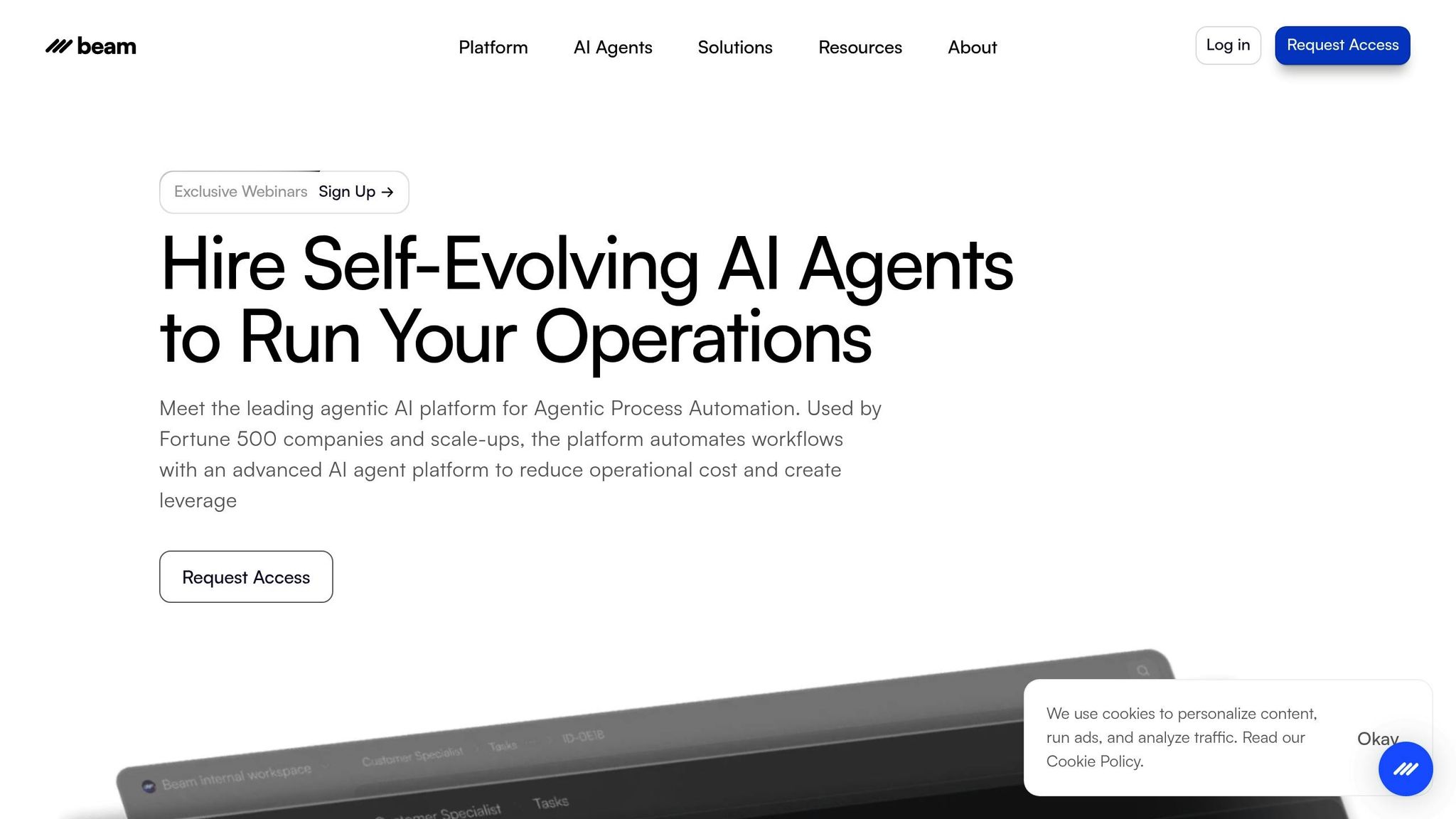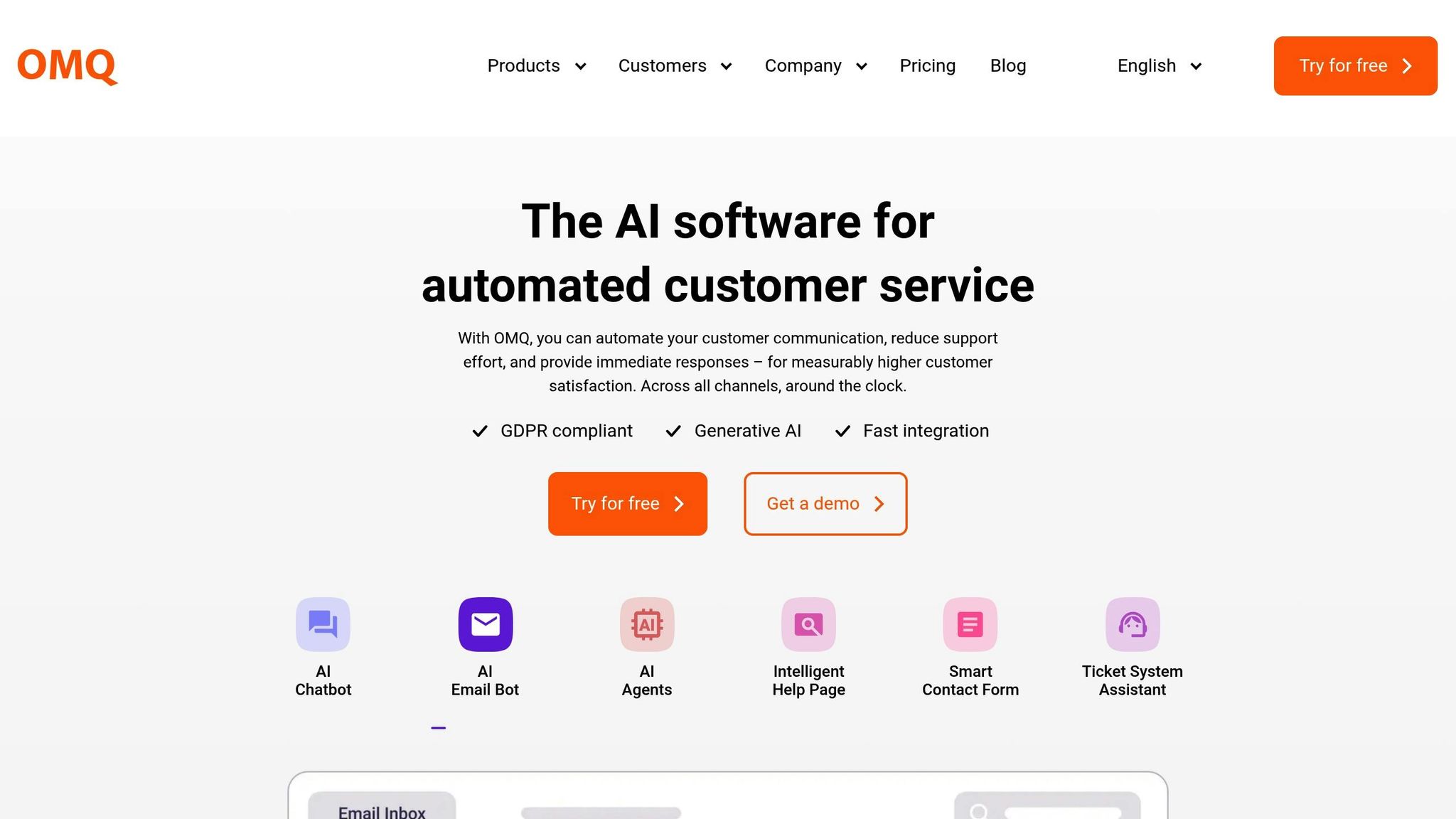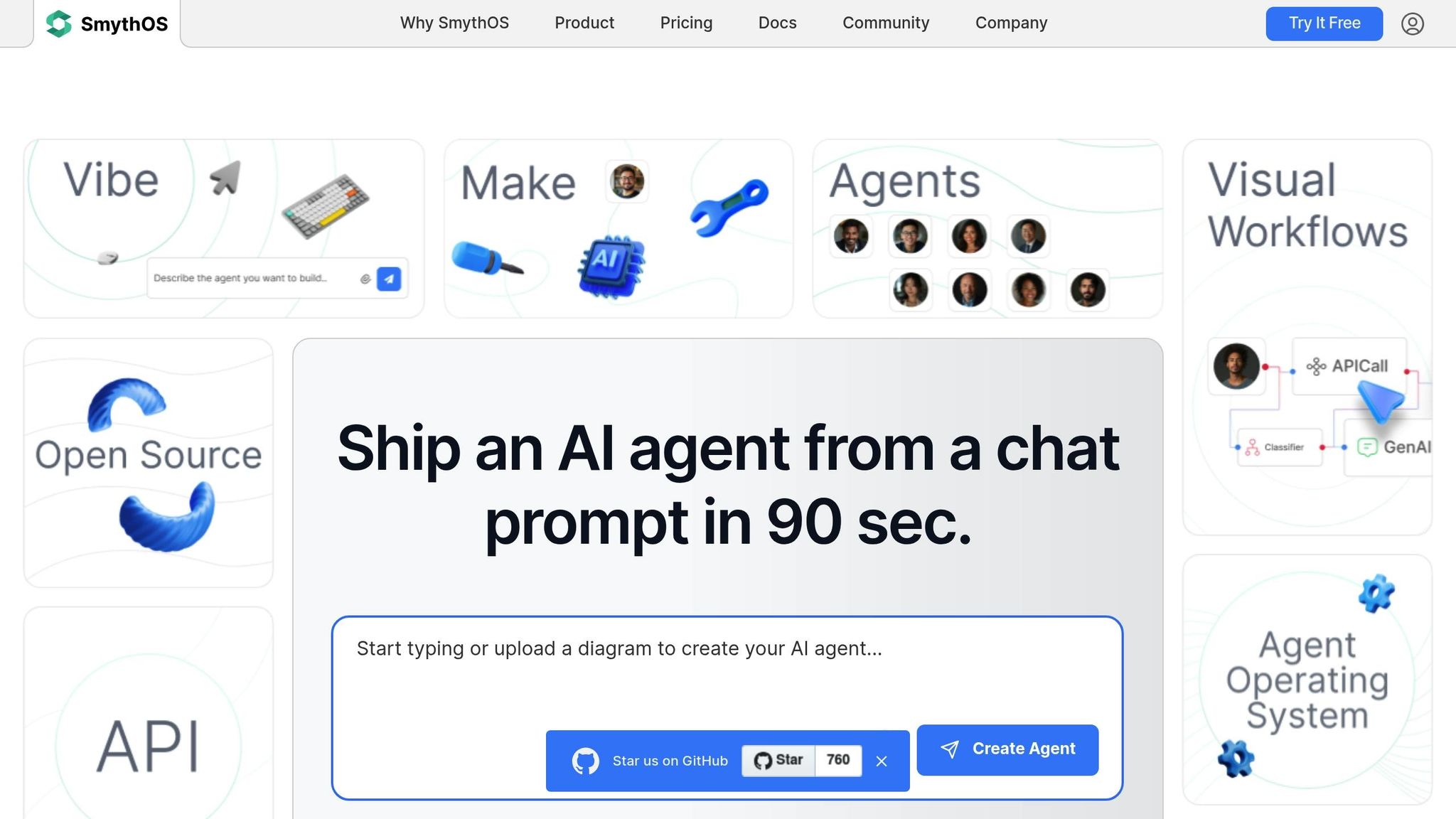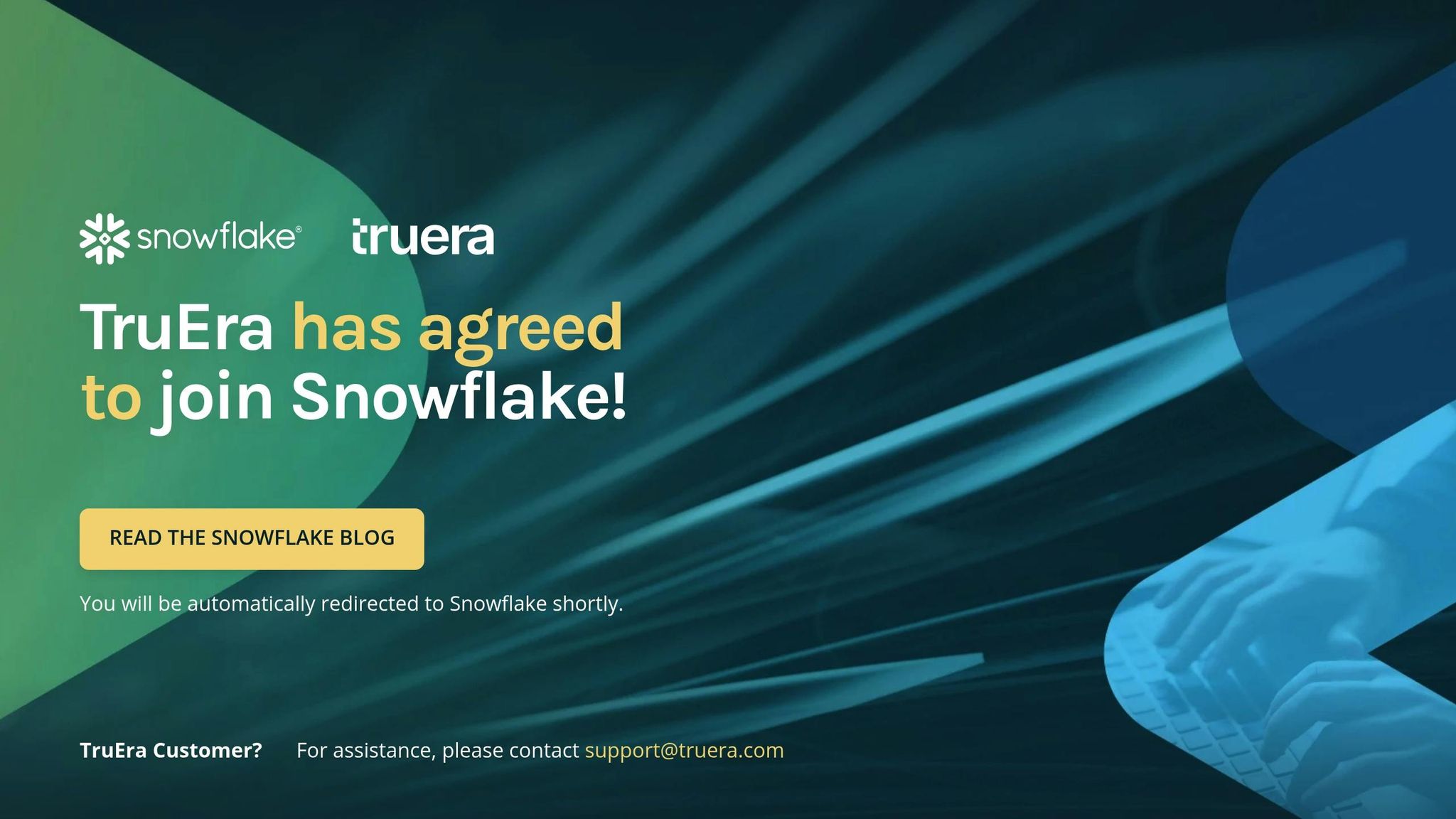
Top 5 AI Platforms with Enterprise Data Privacy Protections for Business
Meet 2025's stricter compliance rules with AI platforms that protect your data while delivering the results your business needs.

Written by
Adam Stewart
Key Points
- Check GDPR and HIPAA compliance before sharing any sensitive business data
- Look for zero data retention policies and strong encryption standards
- Review transparency scores - they dropped 30% industry-wide in 2025
- Test data handling policies with your compliance team before signing up
Choosing AI platforms with enterprise data privacy protections has become a critical business decision in 2025. According to Cloudera's latest global report, 53% of organizations identify data privacy as their top concern when implementing AI tools. With the global average cost of a data breach now reaching $4.88 million, picking the right platform isn't just about features - it's about protecting your bottom line.
The challenge? Transparency is actually declining. Stanford's 2025 Foundation Model Transparency Index found that average scores dropped from 58/100 in 2024 to just 40/100 in 2025. Some major players like Meta saw their scores fall from 60 to 31. This makes finding trustworthy AI tools harder than ever.
This guide breaks down five AI platforms that prioritize clear data policies, strong security measures, and regulatory compliance. Whether you're in healthcare, finance, or legal services, these tools can help you adopt AI without compromising on data protection.
Key Takeaways
- Dialzara: AI phone answering service with end-to-end encryption, HIPAA compliance, and integrations for 5,000+ apps. Built for industries requiring confidentiality.
- Beam.ai: Chatbot platform with detailed documentation on data handling and collection practices.
- OMQ: Customer service platform aligned with GDPR and CCPA, offering automated consent management.
- Smythos: Content platform with multi-jurisdictional compliance and 48-hour breach notification.
- Truera: AI explainability tool providing insights into machine learning models with strong privacy controls.
Quick Comparison
| Feature | Dialzara | Beam.ai | OMQ | Smythos | Truera |
|---|---|---|---|---|---|
| Data Transparency | Clear call and voice data policies | Open about collection methods | Basic clarity | Detailed policies | Model evaluation insights |
| User Consent | Granular controls | Effective tracking | Automated management | Flexible options | Full user control |
| Regulatory Compliance | GDPR, CCPA, HIPAA | Major standards | GDPR, CCPA | Multi-jurisdictional | Comprehensive alignment |
| Security Measures | End-to-end encryption | Industry-standard encryption | Strong protocols | Enterprise-grade | Encryption and audits |
| Data Retention | Customizable options | Clear timelines | Flexible settings | Transparent lifecycle | Transparent management |
Why AI Platforms with Enterprise Data Privacy Protections Matter in 2025
The stakes for data privacy have never been higher. Research shows that 22% of files and 4.37% of prompts shared with AI tools contain sensitive information - including source code, access credentials, customer records, and internal financial data. Roughly 15% of employees have pasted sensitive code, PII, or financials into public LLMs.
Consumer trust reflects these concerns. Approximately 70% of adults say they don't trust companies to use AI responsibly, and 81% expect misuse. A 2024 Cisco survey found that 75% of consumers won't purchase from organizations they don't trust with their data.
The regulatory landscape is tightening too. California's AB 2013 takes effect January 1, 2026, requiring generative AI developers to disclose training dataset details. The EU AI Act comes into full force August 2, 2025, with fines up to €35 million or 7% of global annual turnover for non-compliance.
For businesses evaluating AI tools, the question isn't whether to prioritize privacy - it's how to find platforms that actually deliver on their promises.
sbb-itb-ef0082b
1. Dialzara: Enterprise Data Privacy Protections for Voice Communication
Dialzara is an AI-powered virtual phone answering service built with privacy-conscious businesses in mind. It handles call transfers, message relaying, and appointment scheduling while maintaining strict data protection standards.
Transparent Setup and Data Handling
Getting started with Dialzara takes about 10 minutes. You answer basic questions about your business, choose a voice and phone number, and configure call forwarding. The platform collects only essential information and clearly explains how voice data is processed and stored.
Unlike many AI tools that obscure their data practices, Dialzara provides straightforward documentation on what happens to call recordings, transcripts, and customer information. This transparency helps businesses meet their own disclosure requirements to customers.
Built for Regulated Industries
Dialzara serves industries with strict compliance requirements, including healthcare, legal services, insurance, and financial services. The platform supports GDPR, CCPA, and HIPAA compliance, making it suitable for businesses handling protected health information or sensitive client data.
Security Architecture
The platform uses end-to-end encryption for voice data and secure API communications. With integration capabilities for over 5,000 business applications, Dialzara ensures secure data transfer between systems. The AI operates 24/7, screening calls and managing interactions while keeping security protocols active.
For small businesses without dedicated IT teams, this level of built-in protection removes much of the complexity around data security. You can check Dialzara's pricing plans to find an option that fits your call volume and compliance needs.
2. Beam.ai: AI Development with Built-in Privacy Controls

Beam.ai focuses on creating chatbots and virtual assistants for customer service. What separates it from competitors is the company's approach to data transparency.
Documentation and Data Clarity
Beam.ai publishes detailed documentation explaining exactly how customer data flows through their systems. This includes information about what data is collected during conversations, how long it's retained, and what processing occurs on their servers versus locally.
For businesses asking "are there platforms for data transparency?" - Beam.ai represents one of the more forthcoming options in the chatbot space. Their official documentation breaks down data policies in plain language rather than dense legal text.
Privacy Controls for Developers
The platform provides AI development tools with built-in privacy controls that let developers configure data handling at a granular level. This includes options for data minimization, purpose limitation, and automated deletion schedules - all features that help meet GDPR and CCPA requirements.
3. OMQ: AI Compliance Tools for Customer Service

OMQ is an AI-driven customer service platform designed with small businesses in mind. It emphasizes clear data practices and regulatory alignment.
Regulatory Compliance Features
OMQ aligns with major data protection laws including GDPR and CCPA. The platform includes automated consent management with opt-out options, helping businesses navigate compliance without manual tracking.
For companies looking for AI compliance tools for data privacy management, OMQ provides a solid foundation. The automated features reduce the administrative burden of maintaining compliance, especially for teams without dedicated legal resources.
Security Implementation
The platform applies encryption for data in transit and at rest. While specific certifications aren't extensively detailed in public documentation, OMQ positions itself as meeting industry standards for data protection. For businesses with specific security requirements, contacting the provider directly for detailed specifications is recommended.
4. Smythos: Transparent Dataset Composition and Privacy

Smythos is an AI content platform known for its clear data management practices. The platform provides detailed information about how data is handled, stored, and protected.
Dual-Role Data Framework
Smythos operates using a dual-role framework, acting as either a data controller or processor depending on the use case. This clarity helps businesses understand exactly who bears responsibility for data protection in different scenarios.
The platform doesn't sell, rent, or trade email lists for marketing purposes and avoids requiring customer data as payment. These policies align with international data protection standards and demonstrate a commitment to ethical data practices.
Multi-Jurisdictional Compliance
Smythos adheres to GDPR and major U.S. regulations including CCPA and privacy laws in Colorado, Virginia, Connecticut, and Utah. For international data transfers, the platform relies on the EU-U.S. Data Privacy Framework, EU Standard Contractual Clauses, and UK International Data Transfer Agreements.
Breach Response Protocol
In the event of a data breach, Smythos notifies customers within 48 hours and actively assists with mitigation. This rapid response capability is crucial given that the average data breach now costs $4.88 million - a 10% increase from the previous year according to IBM's 2024 report.
User Rights Management
Smythos provides full GDPR and UK law rights including data access, corrections, deletions, portability, and marketing opt-outs. When customer relationships end, data is either securely destroyed or returned as required by law.
5. Truera: AI Model Transparency and Safety Tools

Truera takes a different approach to transparency by focusing on AI explainability. The platform helps businesses understand how their machine learning models work and what data influences decision-making.
Model Evaluation Transparency
Truera provides detailed insights into the data used for model evaluation. This visibility helps businesses see exactly what criteria are being analyzed, supporting informed decisions about AI deployment.
For organizations asking about AI tools most transparent about dataset composition, Truera offers unique value. The platform doesn't just protect data - it helps you understand how data shapes AI outputs.
Privacy-First Design
Truera aligns with major data protection laws and provides strong controls for maintaining compliance. The platform employs encryption for data in transit and at rest, uses role-based access controls, and conducts regular security audits.
User Data Rights
The platform supports businesses in handling user data responsibly through tools for accessing, correcting, or deleting information. Dedicated channels for addressing privacy concerns help maintain accountability.
How to Evaluate AI Platforms with Enterprise Data Privacy Protections
When comparing AI platforms, use this checklist to assess their data protection capabilities:
Transparency Questions
- Does the platform clearly explain what data it collects?
- Is there documentation on how data is processed and stored?
- Can you access information about the training datasets used?
- Does the vendor provide a data provenance trail?
Security Assessment
- What encryption standards are used for data in transit and at rest?
- Are there role-based access controls?
- How often are security audits conducted?
- What's the breach notification timeline?
Compliance Verification
- Which regulations does the platform support (GDPR, CCPA, HIPAA)?
- Are there automated compliance features?
- How does the platform handle international data transfers?
- What certifications does the vendor hold?
User Rights and Control
- Can users access, correct, and delete their data?
- Are there granular consent management options?
- What are the data retention policies?
- How is data handled when the relationship ends?
The Regulatory Landscape for AI Data Privacy in 2025
Understanding upcoming regulations helps you choose platforms that will remain compliant:
California AB 2013 (effective January 1, 2026) requires generative AI developers to disclose detailed information about training datasets. This means platforms will need to be transparent about what data shaped their models.
EU AI Act (full effect August 2, 2025) introduces a risk-based classification system categorizing AI applications as minimal, limited, high, or unacceptable risk. Non-compliance can result in fines up to €35 million or 7% of global annual turnover.
APAC Regulations are also tightening. India's Digital Personal Data Protection Act imposes strong consent requirements, while China's PIPL enforces strict data localization and algorithmic transparency mandates.
Gartner predicts that by 2025, 60% of large organizations will use at least one privacy-enhancing computation technique in analytics, business intelligence, or cloud computing. Choosing platforms with built-in privacy controls positions your business ahead of these trends.
Privacy-Enhancing Technologies to Look For
Modern AI platforms with enterprise data privacy protections often incorporate these technical safeguards:
Differential Privacy adds statistical noise to outputs, protecting individual data points while preserving useful aggregate insights.
Federated Learning trains AI models across decentralized systems without transferring raw data, keeping sensitive information local.
Data Masking obscures sensitive information during processing while maintaining data utility for analysis.
Encryption at Rest and in Transit ensures data remains protected whether stored or moving between systems.
By late 2025, over 60% of enterprises plan to deploy these techniques to reduce risk without sacrificing functionality.
Detailed Feature Comparison
| Feature | Dialzara | Beam.ai | OMQ | Smythos | Truera |
|---|---|---|---|---|---|
| Data Collection Transparency | Clear voice and call data documentation | Detailed collection explanations | Basic data practice communication | Comprehensive policy documentation | Model evaluation data insights |
| User Consent Management | Granular call consent and retention controls | Effective consent tracking | Automated management with opt-out | Flexible consent options | Full user control over data |
| Regulatory Compliance | GDPR, CCPA, HIPAA | Major data protection standards | GDPR, CCPA | Multi-jurisdictional compliance | Comprehensive law alignment |
| Security Measures | End-to-end encryption, secure APIs | Industry-standard encryption | Encryption in transit and at rest | Enterprise-grade protocols | Encryption plus regular audits |
| Data Retention Policies | Customizable with auto-deletion | Clear retention timelines | Flexible retention settings | Transparent lifecycle management | Transparent data lifecycle |
| Third-Party Integrations | 5,000+ secure business apps | Key business tool connections | CRM and support platforms | Vetted third-party integrations | API-first secure data sharing |
| Breach Response | Documented incident protocols | Standard response procedures | Basic incident handling | 48-hour notification guarantee | Regular security audits |
This comparison highlights how each platform addresses privacy and security. The differences in security measures can directly impact breach response times and remediation costs.
Currently, only 10% of organizations have formal, comprehensive policies for generative AI. For small businesses without dedicated compliance teams, tools with built-in privacy features provide significant advantages.
Choosing the Right AI Platforms with Enterprise Data Privacy Protections
Selecting AI platforms with enterprise data privacy protections isn't just about checking compliance boxes. It's about building a foundation for sustainable business growth and maintaining customer trust in an era where 70% of consumers don't trust companies to use AI responsibly.
The platforms covered here - Dialzara, Beam.ai, OMQ, Smythos, and Truera - each approach data protection differently. Dialzara excels at voice communication security for regulated industries. Beam.ai provides developer-friendly privacy controls. OMQ offers automated compliance for customer service. Smythos delivers multi-jurisdictional coverage with rapid breach response. Truera brings unique value through AI explainability.
As regulations like California's AB 2013 and the EU AI Act take effect, choosing platforms with transparent data practices becomes increasingly important. Tools that clearly explain data handling, provide granular user controls, and maintain strong security measures will help your business adapt to evolving requirements.
To maintain high transparency standards, take these steps: regularly review privacy policies, train employees on responsible data management, and avoid sharing personally identifiable information with AI systems unless you're confident in the tool's protections.
AI platforms with enterprise data privacy protections do more than meet regulatory requirements. They build customer confidence, simplify compliance, and provide operational clarity. By choosing tools that prioritize transparency, businesses can focus on growth while protecting their most valuable asset - customer trust.
FAQs
Why are transparent data policies important for industries like healthcare and finance?
Transparent data policies are essential in healthcare and finance because these industries handle highly sensitive information. Patient records, financial transactions, and personal data require clear documentation of how information is collected, processed, and protected.
When AI platforms prioritize transparency, they help businesses minimize risks, support better decision-making, and strengthen accountability. In regulated fields, ethical data practices directly affect outcomes like patient safety and financial stability. Clear policies help organizations meet compliance requirements while building customer confidence.
What key features should an AI tool have to meet GDPR and CCPA requirements?
To align with GDPR and CCPA, an AI tool should include:
- Data minimization - collecting only necessary information
- Purpose limitation - using data only for specified purposes
- Automated data discovery - identifying and managing personal data
- Audit trails - tracking data handling activities
- Real-time alerts - flagging potential compliance issues
- Secure deletion options - addressing user requests promptly
- PII identification - recognizing personally identifiable information
- Data inventory - maintaining records of what data exists where
These features make navigating complex regulations more manageable while protecting user trust.
Why should small businesses choose AI tools with built-in compliance features?
For small businesses, AI tools with integrated compliance features simplify data privacy management. These tools automate privacy tasks, secure sensitive data, and promote responsible AI use without requiring dedicated legal or IT teams.
Using compliance-ready AI tools minimizes legal risks, protects your reputation, and strengthens customer trust. They simplify data management so you can keep up with changing privacy laws while focusing on core business activities.
Are there AI platforms that prioritize strong security and data management for business documents?
Yes. Enterprise-grade solutions like the platforms reviewed here offer strong security for business documents. Look for features including end-to-end encryption, role-based access controls, secure API communications, and compliance with regulations like HIPAA for sensitive documents.
Platforms like Dialzara, which integrates with 5,000+ business applications while maintaining security protocols, demonstrate how AI can handle sensitive business communications without compromising data protection.
Summarize with AI
Related Posts
How AI Risk Management Protects Customer Data
Explore how effective AI risk management safeguards customer data against breaches while ensuring compliance and transparency.
Transparent AI for Customer Service: Build Trust
Discover how transparent AI in customer service can build trust, foster loyalty, and enhance credibility through clear communication, data protection, and explainable AI models.
AI in Finance: Balancing Consumer Data Rights
Learn how financial institutions balance AI innovation with protecting consumer data rights. Explore key data privacy laws and consumer control practices.
15 Best Ethical AI Tools for Bias Detection, Governance & Compliance in 2025
Explore the top 10 tools for developing ethical AI systems in 2024. Learn how these tools promote fairness, transparency, privacy, and security in AI development.
